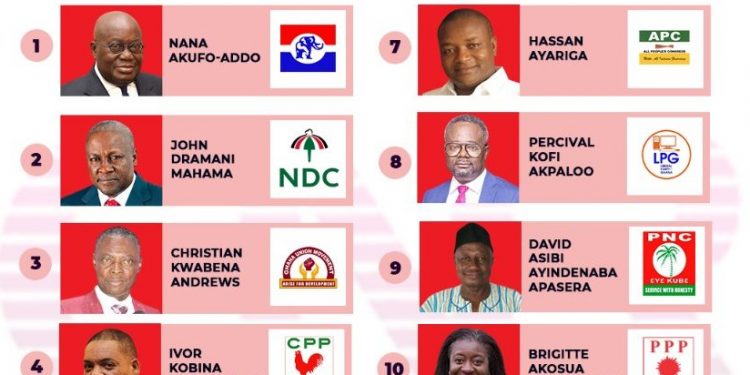Stop the politics of insults: Towards peaceful 2020 election in Ghana
In 1996, as a little boy growing up in Nungua (a suburb of Accra), I witnessed lots of very tensed political activities that I have very graphic memories of. I can vividly recall some supporters of the then National Democratic Congress (NDC) candidate, Joshua Alabi, chant lots of libelous folk songs against the then main New Patriotic Party (NPP) contender, Dr. Samuel Okla Bortei-Doku.
The rather damning lyrics of one of the folk songs which was sung in the Ga language is as follows:
“Bortei-Doku shiiiɔ abele ni ekpeɔ
Hɔmɔ yeeɔ lɛ
Pooopo popolipopo
Hɔmɔ yeeɔ lɛ”
(To wit, Bortei-Doku is such a poor hungry man who feeds on roasted maize/corn)
Interestingly, my little curious mind was wandering about to understand what the above song really meant because I knew Dr. Bortei-Doku as a venerable and very accomplished veterinary expert whose personage rather runs parallel to the character referred to in the above folk song.
Unfortunately, it appears the politics of insults, defamation, and personality assassination has come to stay in our (Ghanaian) body politic. There are extant print and live audio-visual recordings of sitting members of parliament (MP’s) and other apparatchiks of some political parties dolling our unsavory words of insults to each other in heated political debates.
According to a survey report by the Media Foundation for West Africa (MFWA), during the 2012 elections, among a list of 10 indecent expressions used against opponents of political parties, insults/offensive comments, unsubstantiated allegations and provocative remarks ranked the 3 most frequently used (MFWA, April 7, 2016). The same Survey report revealed that 2,850 radio programs on 31 radio stations and a total of 509 indecent expressions were coded on these programs – with 404 indecent expressions made by affiliates of political parties.
In a similar survey repeated by MFWA in 2016, the indecent expressions (including insults) made by political actors increased from 404 to 464 (MFWA, “Watching the watchdog: Indecent campaign language use on radio during 2016 elections”). Do these statistics and genuine concerns raised by other Civil Society Organizations (CSO’s) about the politics of insults mean anything to key stakeholders of elections in Ghana?
The 2020 election year is no different from previous election years in Ghana in spite of the discomforting situation the novel COVID 19 pandemic has thrown Ghana and the rest of world into. As the presidential and parliamentary candidates mount campaign platforms at several locations in the nooks and crannies of the country, intemperate expressions or words and smear campaigns are rife.
Some of the words which form the 2020 elections’ lexical content of insults by some key political actors include, “thieves”, “stupidity”, “Sakawa” (fraudulent), “papa no” (womanizer by implication), “incompetent”, “corrupt” among other unprintable words. It is also not uncommon to come across very wild and unsubstantiated allegations politicians throw at each other in the bid to score political points.
The verbal brawl among opposing political party sympathizers during social media discourses can be really dirty. Some put on the veil of anonymity and practically insult some very respectable key political actors they know little or nothing about. This is becoming very worrying.
It is very understandable that when contests like elections get intense, competitors throw a few jabs at each other to feed their egotistic cravings. However, when insults and virulent vituperations served in a seemingly organized fashion become pervasive in our body politic, then we need to wake up. When this culture of insults is not curbed immediately, potentially great leaders who care so much about their personages would be discouraged from engaging in our politics and active governance.
Political key actors which include presidents and former presidents leave no legacy of good leadership examples for the younger generation when they keep hurling insults at each other in political contests. Too often, by the time an election is over, too many personalities will have been badly damaged by insults, blatant lies, and stray propaganda beyond repairs.
Due to this growing culture of the politics of insults, Ghana’s invaluable value of respect for the old is seemingly waning with unimaginable rapidity. By the kind courtesy of the politics of invectives and character assassination, we have successfully established the fallacies that “politics is a dirty game and all politicians are morally corrupt”. Depending on which political divide one belongs to, the opposing candidate(s) is/are corrupt – an interesting logic it really is.
Who said it is impossible for political intercourses to take place without the display of needless bravados with regards to the industry of ad hominem (personality attacks)? Who bewitched us that to look good in the eyes of our electorates is equal to casting abusive spells on our political opponents?
Without comparing ourselves to any mature democracy, we need to come to the realization that the politics of insults – if not checked – will be a ticking time bomb that may blow up in our faces in the not-too-distant future. It is incumbent on all stakeholders of our growing democracy to religiously ensure that we employ every weapon of decency and decorum to triumphantly fight the growing beast of insults in our politics.
As we (Ghanaians) head to the polls on 7th December, let us ensure that we vote peacefully. May God continue to bless our homeland, Ghana.




Well said sir, unfortunately the young politicians have learnt this rather awkward behavior better than their masters. So I ask myself, is there any hope at all. I faintly believe there is.